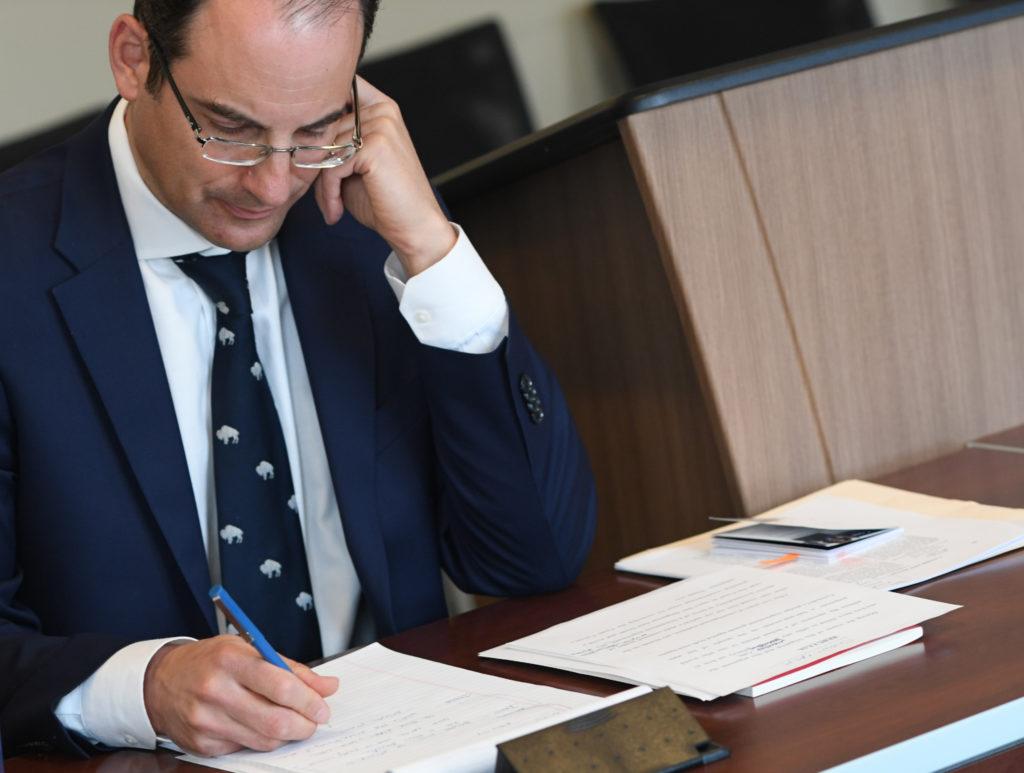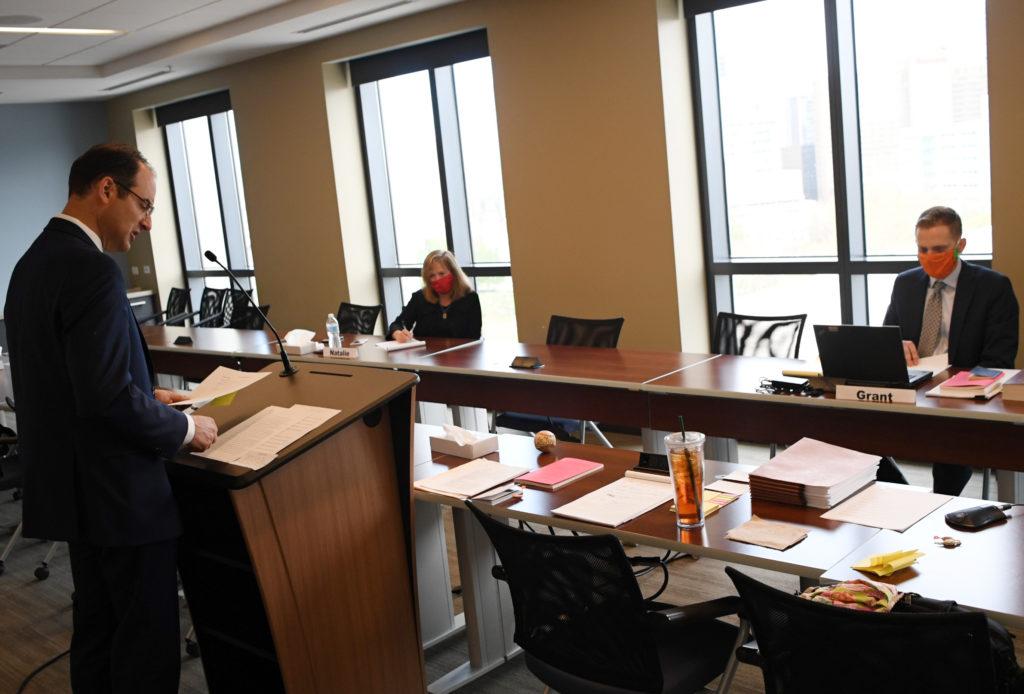Attorney General Phil Weiser told U.S. Supreme Court justices Wednesday that Colorado has the right to require its nine presidential electors cast ballots for the candidate who won the state’s popular vote and warned that if electors can vote for whoever they want, it would mean an undemocratic and “treacherous” future.
The attorney for Colorado’s former elector Micheal Baca, who, in 2016, attempted to cast a ballot in the Electoral College that didn’t match the selection made by the state’s voters, told the high court that presidential electors are “real humans” with discretion and free will and the constitution guarantees them the right to make whatever decision they want.
The storied tangle between Colorado and the so-called faithless electors from 2016 now rests with the highest court in the United States for resolution.
It started three and a half years ago when Baca and two other Colorado electors decided against casting ballots for Hillary Clinton, who won the state’s popular vote in 2016.

Two of the electors eventually caved, but Baca didn’t and was removed by state officials and replaced by someone who supported Clinton. Baca sued the state over his removal in federal court and eventually, the 10th Circuit Court of Appeals sided with him, saying presidential electors are free to cast a ballot for who they want.
At question is whether states have the right to remove or sanction electors who don’t follow the will of the state’s voters in presidential elections.
Discomfort With Electors Having Total Free Will
In oral arguments via telephone Wednesday morning, Supreme Court justices seemed uncomfortable with electors exercising total discretion, saying that could create “chaos” around presidential elections in the United States.
In questioning Baca’s attorney, Jason Harrow, Chief Justice John Roberts asked whether electors could truly just “flip a coin” and decide who they wanted to support — even after voters from a state had gone to the polls and chosen a presidential candidate.
Harrow said, yes, that the electors had the discretion to do that.
Roberts cut him off, “That sounds pretty limitless to me.”
But the justices also pushed Weiser on how much a state could dictate how electors should operate. What if a state legislature required an elector to only select a presidential candidate who had visited the state? Or endorsed a certain set of political beliefs?
Weiser said the states could only operate under the Constitution, that states could not remove electors based on race or religion, for example, and states could not bind an elector to vote for someone who was not qualified to be president of the United States.
But Weiser did acknowledge the states have the freedom to craft their own laws.
“I don’t see a constitutional reason why a requirement to visit the state is flawed … but again that’s far from this case in Colorado,” Weiser said.
A Wild Hobbit Makes An Appearance
Justice Clarence Thomas pushed Baca’s attorney Harrow on whether electors could truly vote for anyone they wanted for president — he used Frodo Baggins as an example, a protagonist from Lord of the Rings.
“What’s the accountability here for an elector if they stray from what’s expected?” Thomas said to Harrow. “The elector who had promised to vote for the winning candidate could suddenly say, you know, I’m going to vote for Frodo Baggins. I really like Frodo Baggins … You can’t do anything about that.”
Harrow countered that elector would be thrown out.
“That would be a vote for a non-person … I do think the important point is the Framers hashed out these competing concerns,” Harrow said. “Electors are best placed to make the ultimate selection. That hasn’t changed.”
In Colorado, electors must live in the state and are chosen by state delegates in a party process. It’s made clear when they take an oath that they are required to support the candidate chosen by voters.

Elector Rebellion, So Far, Is Untested
The debate about the role and power of electors is all mostly theoretical so far: no elector rebellion has ever thrown a presidential election.
In 2016, about a dozen electors across the country rebelled and supported a candidate that didn’t win their states in a loose effort to throw the election to the U.S. House of Representatives. But the effort wasn’t sufficient to prevent Trump from getting enough electoral college votes to win the election.
Colorado shared the stage Wednesday with Washington state, which had a similar case before the court after an elector there was fined $1,000 for not supporting Clinton in the Electoral College.
Both sides said after the arguments they expect the high court to wrap the cases into one opinion, even though Justice Sonia Sotomayor recused herself from the Colorado case because she is friends with one of the “faithless” Colorado electors, Polly Baca.
The court will have to decide whether Colorado has the right to remove electors who cast a ballot against the candidate supported by the state’s voters. Because of Sotomayor’s recusal in Colorado’s case, a 4-4 vote is possible, which would mean the lower court opinion stands which gave electors’ a right to do what they want.
Weiser, in a press availability after the arguments, said he was amused about Thomas’ question about Frodo Baggins because he is a huge Lord of the Rings fan.
“I thought it was super telling ... that he wasn’t able to explain what could you do,” Weiser said, of Harrow, Baca’s attorney. “Because the state’s removal power is the power that is necessary to remove Frodo Baggins. If you wait for Congress to do the removal on the back end, the state doesn’t get to substitute another elector, the state has been disenfranchised.”









